While we were away, out selling books at a string of events — a book-lovin’ travelogue I’ll tell 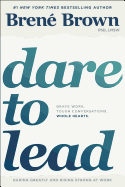
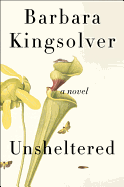 you about soon — a whole batch of very important new books came into the store. Coming back in our rented truck felt like Christmas with new releases awaiting from Brene Brown (a thoughtful Christian friend of mine calls Dare to Lead: Brave Work. Tough Conversations. Whole Hearts. [Random House; $28.00] a “game changer”) and a new novel by Barbara Kingsolver, provocatively called Unsheltered (Harper; $29.99) and a serious new one by Lauren Winner, The Dangers of Christian Practice: On Wayward Gifts,
you about soon — a whole batch of very important new books came into the store. Coming back in our rented truck felt like Christmas with new releases awaiting from Brene Brown (a thoughtful Christian friend of mine calls Dare to Lead: Brave Work. Tough Conversations. Whole Hearts. [Random House; $28.00] a “game changer”) and a new novel by Barbara Kingsolver, provocatively called Unsheltered (Harper; $29.99) and a serious new one by Lauren Winner, The Dangers of Christian Practice: On Wayward Gifts, 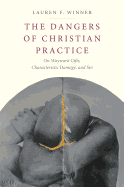
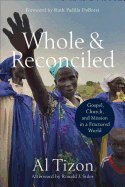 Characteristic Damage, and Sin published by Yale University Press ($28.00.)
Characteristic Damage, and Sin published by Yale University Press ($28.00.)
How very glad we were to see our friend Al Tizon’s Whole & Reconciled: Gospel, Church, and Mission in a Fractured World, with a foreword by Ruth Padilla DeBorst and an Afterword by Al’s mentor about wholistic mission, Ronald Sider (Baker; $22.99.) I can assure you it will be excellent and, yes, still very much needed.
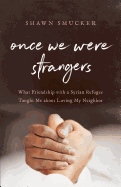 Speaking of friends, Lancaster-based writer Shawn Smucker just released Once We Were Strangers: What Friendship with a Syrian Refugee Taught Me about Loving My Neighbor (Revell; $14.99.) Our staff back here at the shop knew I was eager to see it and texted me a photo of the cover the day it arrived.
Speaking of friends, Lancaster-based writer Shawn Smucker just released Once We Were Strangers: What Friendship with a Syrian Refugee Taught Me about Loving My Neighbor (Revell; $14.99.) Our staff back here at the shop knew I was eager to see it and texted me a photo of the cover the day it arrived.
Although they aren’t nationally-known works we’re so excited to have two brand new books on the arts. I am jazzed about the new book (the first of a trilogy) by spoken-word artist and Humble Beast hip-hop record label founder Thomas Terry and Western Seminary theology professor J. Ryan Lister called Images and Idols: Creativity for the Christian Life (Moody Press; $14.99.) It’s a very cool thing to behold, sans dust jacket, and with a foreword by Jacki Hill-Perry. It is not fluff and it is not predictable. I know — I was up late last night perusing it.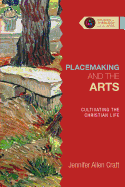
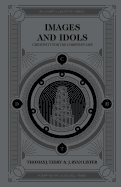 Even more exciting to me is a major, major work in the on-going series by IVP Academic called “Studies in Theology & The Arts” entitled Placemaking and the Arts: Cultivating the Christian Life by Jennifer Allen Craft (IVP Academic; $30.00.) It is, as the title suggests, a study of how the arts can enhance our sense of place; or, similarly, how a sense of place can inform one’s art. It is a fascinating and important new book about Christian aesthetic faithfulness, essential for contemporary artists and great for anyone interested in the topic. Not many books cite Wendell Berry and Calvin Seerveld, so you know I’m all in!
Even more exciting to me is a major, major work in the on-going series by IVP Academic called “Studies in Theology & The Arts” entitled Placemaking and the Arts: Cultivating the Christian Life by Jennifer Allen Craft (IVP Academic; $30.00.) It is, as the title suggests, a study of how the arts can enhance our sense of place; or, similarly, how a sense of place can inform one’s art. It is a fascinating and important new book about Christian aesthetic faithfulness, essential for contemporary artists and great for anyone interested in the topic. Not many books cite Wendell Berry and Calvin Seerveld, so you know I’m all in!
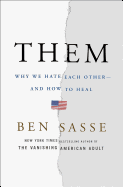 And, just yesterday — we haven’t even unpacked our road-tripping book vans, yet — we got the brand new book by Ben Sasse called Them: Why We Hate Each Other — and How to Heal (St. Martin’s Press; $28.99.) I’m sure you can guess that I’m a fan of this call to civility and am sure we want to commend it to you and yours.
And, just yesterday — we haven’t even unpacked our road-tripping book vans, yet — we got the brand new book by Ben Sasse called Them: Why We Hate Each Other — and How to Heal (St. Martin’s Press; $28.99.) I’m sure you can guess that I’m a fan of this call to civility and am sure we want to commend it to you and yours.
I wish I had time and energy to tell you more about these. But what I’d like to share now, quickly, is a short review I did for the Pittsburgh Post-Gazette of another book that arrived in our absence. (I had an early advanced reader’s review copy and it is so cool to see the real thing.)
If you read BookNotes you may have seen that I’ve done a few other reviews for the storied Pittsburgh newspaper, a privilege I don’t take lightly. It’s a different sort of thing writing for a public audience, although the book review editor there, a person of serious faith himself, has invited me to write about these kinds of books that might bear witness to Christian truth by authors who may have a wider appeal than just the intentionally religious reader.
And so, thanks to the Post-Gazette. It is exciting to see it for real, in the big city paper. Here, though, is the longer, unedited version that I sent in. I bring to you news of the brand new Anne Lamott, Almost Everything: Notes On Hope (Riverhead; $20.00.) Of course, we have it at the BookNotes 20% off and you can order it by asking at our secure order form page by following the link below. Or call, or send us an email. Enjoy.
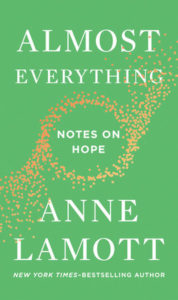 Almost Everything: Notes on Hope Anne Lamott (Riverhead Books; 2018) $20.00
Almost Everything: Notes on Hope Anne Lamott (Riverhead Books; 2018) $20.00
Anne Lamott is one of those authors who has fanatical fans. Although she is an esteemed novelist (with seven fiction works) her most dedicated readers follow her non-fiction. She has gifted the world with memoirs and essays; Almost Everything: Notes on Hope is her 11th collection.
Lamott’s Bird By Bird continues to be used in writing classes. Two of her books tell stories of her parenting (the delightful Operating Instructions: A Journal of My Son’s First Year came out in 1993 and years later she co-wrote, with her son Sam, Some Assembly Required: A Journal of My Son’s First Son.) Traveling Mercies: Some Thoughts on Faith catapulted her into the world of prominent, non-fundamentalist, religious writers. That she has straddled the secular literary world and the evangelical “Christian Bookstore” marketplace despite her progressive politics and hilariously snarky tone and explicit language – her own conversion narrative includes dropping the F bomb and isn’t likely to be featured at a Billy Graham-type rally — is a miracle of nearly Biblical proportions.
Ms. Lamott is a recovering alcoholic from a upstanding, middle class family of the 1950s that, as we’ve learned (over and over, again in Almost Everything) was pretty messed up. She is candid about her own shame and foibles (which apparently includes giving most of her friends too much candor, since, well, she’s right about everything.) Few authors can share even horrific stuff about her own sorry condition and bad, bad habits without wallowing. Her books are realistic, without being depressing.
Some of her books are more overtly Christian than others, although she admits to being Jesusy, everywhere, always. Several of her books are “thoughts on faith” and are widely ecumenical, drawing on new age gurus, ancient mystics, and her small, urban Presbyterian church where she teaches Sunday school to a few kids who may not know how lucky they are. Help, Thanks, Wow: The Three Essential Prayers captures much of her spirituality, nicely combining goofy profanity and a pretty solid bit of spiritual advice. Hallelujah Anyway came out last year about the time Pope Francis was calling us to the virtues of mercy, and Anne chimed in, keeping it real.
And keeping it real is a big part of her brand new release, Almost Everything. She is (and she assumes her readers are) in despair about the public figure Who Will Not Be Named, although, not surprisingly, she names him. The book is not only or even mostly about Trump, but like her 2005 Bush-era Plan B some may find it a bit too whiny about her political frustrations.
Or, maybe not. Who isn’t concerned about the breakdown of civility and the weirdness of our Twitterer in Chief? Anxiety about our times is increasingly a non-partisan affair, and Lamott brings some sage advice that might help us cope.
In fact, she insists that our health and sanity just might depend on it. We need hope in these disturbing times and here she offers “almost everything” she knows, really knows. She calls us “Dearest” and is inviting, not scolding, and admits, after telling of experiencing what she is convinced were authentic Divine encounters, “But that’s just me, with perhaps an overeager spiritual imagination and a history of drugs.” With a beautiful passage about noticing flowers, she tells us to pay attention to light.
For Lamott, paying attention to light starts with admitting that life is paradoxical. She cites T.S. Eliot, who wrote, “Teach us to care and not to care/Teach us to sit still.” And yet, she knows, “We long for this, and yet we check our smartphones every ten minutes for news, texts, distractions.”
She tells stories of those who discover aliveness, who realize that truth is paradoxical. She ponders how light can be both particles and waves. She gets that there is joy even in hard times. “Almost every facet of my meager maturation and spiritual understanding,” she shares, “has sprung from hurt, loss, and disaster.” Like the playwright, Beckett, she knows we are “born astride the grave.” She wears her paradoxes on her sleeve. “Is it true that the more you give, the richer you are?” She then quips, “Do you want my mailing address?”
Counterintuitive as it may be, we must honor our pain and fear even while we “do the next right thing. We tell the truth. We march, make dinner, have rummage sales to raise relief funds…” With helpful friends we won’t “get stuck in hopelessness: we can take one loud, sucking, disengaging, step back into hope. We remember mustard seeds, that the littlest things will have great results. We do the smallest, realest, most human things. We water that which is dry.”
Lamott is often very witty, and her clever lines keep coming. “There is almost nothing outside you that will help in any lasting way, unless you are waiting for a donor organ.” Right.
She declares that “Chocolate with 81% cacao is not actually a food. It’s best use is as bait in snake traps. Also, a shim to balance the legs of a wobbly chair. It was never meant to be considered an edible. “ But then she preaches: “Don’t let others make you feel unsophisticated if you reach middle age preferring Hershey’s Kisses. So many of your better people do. Also, always carry a handful of Kisses in your backpack or purse to give away. People will like you more.”
I told you this book was filled with sage advice.
At the center of Almost Everything – actually it comes in early, but remains as a core theme – is the quandary of how not to hate. Although there are some great sections on joy – she’s like a funky, flower-power lady channeling C. S. Lewis about being designed for joy, making a sly argument from design for ultimate meaning — and plenty of upbeat stories, she is sincerely worried about the damages to our soul when we hate.
There is an essential chapter called “Don’t Let Them Get You To Hate Them” that decries how so many of us experience derangement. “Some of us have developed hunchbacks, or tics in our eyelids. Even my Buddhist friends have been feeling despair, and when they go bad, you know the end is nigh.” She’s not kidding, though, admitting, “I have been one of the walking wounded for a year or so – actually more like the zombies in Night of the Living Dead, because we are fused with people when we hate them. We’re not us anymore. We become like them. “
She quotes Booker T. Washington and Martin Luther King, elegant reminders that hate not only isn’t very effective but belittles our own souls. It may be comforting for a bit, she admits, but, “regrettably, it’s malignant.” I wonder how many readers will nod in recognition when she tells of enjoying her loathing. “It’s not white-hot hate,” she says, “as I can’t afford to be ignited and let it consume my life, but there is a lot of heat in there, a combination of sickness and fire. The fever makes me into a war zone of blasts, rubble, mission creep, and the ministrations of my own private USO. It steals from me what one might call my better angels, my higher self, my center; c’est la guerre.”
So she carries on, praying the St. Francis prayer, drawing on her 12-step stuff, reporting good news about her Sunday school kids. She shares beautifully moving episodes from her work with the dying, as a good friend and hospice volunteer.
Many are deeply blessed by Lamotte’s down-to-Earth spirituality, her cleverness, her ability to tell a story with a moral, or at least with a sensible point. After telling of a cheap moment of forgiveness, where everything became “fine” she admits that it wasn’t so. A deeper reconciliation was needed with her uncle. Eventually they slowly rebuild their relationship. She has active empathy for him. He laughs at her jokes, at least a bit. She sings a Christmas carol with him, one she hates, and concludes, “To me, it was like Lourdes.”
And ain’t that the central paradox of life: love beats hate; light overcomes darkness. Small, good acts, generate hope. That is almost everything she knows.
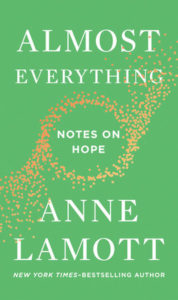
BookNotes

SPECIAL
DISCOUNT
ANY BOOK MENTIONED
20% OFF
order here
this takes you to the secure Hearts & Minds order form page
just tell us what you want
inquire here
if you have questions or need more information
just ask us what you want to know
Hearts & Minds 234 East Main Street Dallastown PA 17313
read@heartsandmindsbooks.com
717-246-3333
